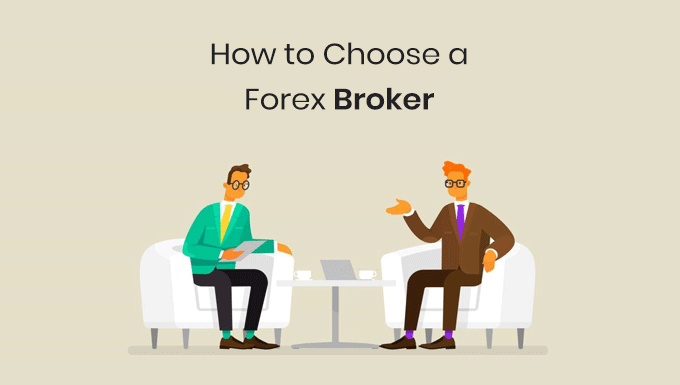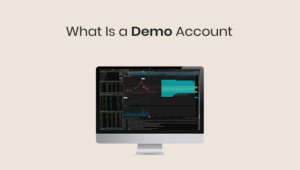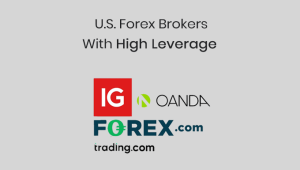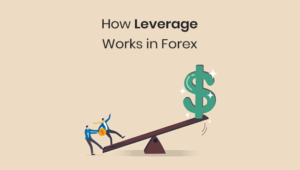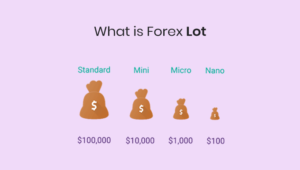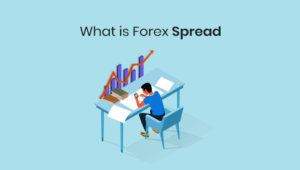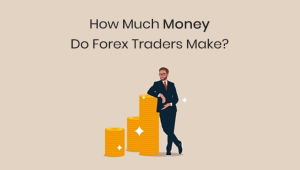How to choose the right forex broker is one of the most important tasks for a beginner trader. Choosing a forex broker that is right for you and your investment needs can be a challenging task. Since there are so many online brokers today, choosing between them is like selecting an insurance agent.
What to Consider When Choosing a Forex Broker
Here are 15 key factors that every trader should consider when choosing the right forex broker.
2. Reputation
3. Account Types
4. Data Security
5. Independent Account Management
6. Spread
7. Leverage and Margin
8. Minimum Deposit
9. Transaction Costs
10. Financial Instruments Offered
11. Trading Platform
12. Deposit and Withdrawal
13. Automated Trading Functionality
14. Bonuses
15. Customer Support
1. Is the Broker Regulated?
I recommend choosing a forex broker especially regulated by the financial regulator in your region or country.
In the United States, all online brokers are regulated by the Commodity Futures Trading Commission (CFTC) and National Futures Association (NFA).
Below is a list of countries with their corresponding regulatory bodies.
– United States: National Futures Association (NFA) and Commodity Futures Trading Commission (CFTC)
– United Kingdom: Financial Conduct Authority (FCA) and Prudential Regulation Authority (PRA)
– Australia: Australian Securities and Investment Commission (ASIC)
– Switzerland: Swiss Federal Banking Commission (SFBC)
– Germany: Bundesanstalt für Finanzdienstleistungsaufsicht (BaFin)
– France: Autorité des Marchés Financiers (AMF)
– Canada: Office of the Superintendent of Financial Institutions (OSFI)
– India: Securities and Exchange Board of India (SEBI)
Before even thinking about funding your money to a forex broker, make sure that the broker is a member of the regulatory bodies mentioned above.
A good broker will usually take pride in their license and use it as a selling point.
The advantage of choosing a regulated forex broker is that it will ensure that you, as a trader, are protected to the fullest extent of the law in your country.
For example, in 2018, the European Securities and Markets Authority (ESMA) introduced many laws to protect retail trading clients that all European forex brokers must comply with. This law covers available leverage, volatility protection, negative balance protection, and more.
2. Reputation
Do a thorough check and evaluate the reputation of the Forex Broker you want to trade with. You can start with a simple Google search with the broker name + scam, broker name + complaints, and broker name+ review.
While there are many forums and blogs you can find online, anyone can post anything to many of these, making them great spots for any loser seeking to vent frustration at a broker. Unhappy customers are more likely to post than satisfied ones.
You could check websites like dailyforex.com or forexpeacearmy.com who do their own independent reviews to pick up the overall level of satisfaction.
This will enable you to know what its existing and past clients think about the company. Poor reputation is more likely to be because of poor services. If a broker has a history of non-payment of profits, do not use that broker.
When visiting broker sites, look for evidence credibility. Do the reviews reveal weaknesses and strengths, or does it sound like it was written by the broker’s marketing writers. Also, take note if the same brokers that get top reviews are running advertisements or have links on the site to open an account, creating potential conflicts of interest.
3. Account Types
Types of trading accounts offered by the broker can vary. Most brokers today offer micro, mini, and standard types of accounts for their clients. Having a micro account is very convenient for newbies as it allows the traders to start trading with a few hundred dollars.
4. Data Security
What will protect your money and personal information? A reputable forex broker should have the ability to back up all major account information and ensure the security of your information. If a broker has explicitly not mentioned measures to protect you and your account balance in the contract, it may be best to find another broker.
5. Independent Account Management
It is also important to consider the safety of your funds. Any Forex broker should allow you to manage your trades and your account independently.
With this in mind, I recommend choosing a forex broker that keeps their clients’ funds separate from their own and ensures that the broker cannot use your deposits for any of its financial activities. This is the best way to avoid any scam. This also ensures that your funds will be available for withdrawal upon request.
6. Spread
Forex brokers make money by charging a commission per trade or a spread. The tighter the spread is, the better.
Since currency exchange trading is not conducted through a central exchange market, the size of the spread may differ from broker to broker.
Therefore it is important to find out whether the broker spread is fixed or variable. A fixed spread means the spread does not fluctuate and is the same day or night.
Some brokers use a variable spread, which may seem narrow and tight while the market is quiet, but when things get volatile, they can widen the spread, which requires the market to move greater in your favor before you start to make a profit.
I prefer fixed spreads, although slightly wider than the variable spreads. When things get volatile, they can be narrower than the variable spread. Over the long term, they can be safer.
7. Leverage and Margin
When you start trading forex, you probably will not need the highest level of leverage. But as you take your trading further and become proficient at it, you will need more leverage to place as many trades as you can. For the time being, choose a broker beforehand that offers the highest level of leverage approved by its regulator so that you don’t have a problem later.
8. Minimum Deposit
Many forex brokers ask clients to make a minimum deposit when opening a live trading account. Hence, finding a broker who offers the facility to open an account with a minimum amount is important.
9. Transaction Costs
The amount of commissions and fees charged by a forex broker is sometimes crucial to maximize your income and minimize your costs.
Usually, commissions and fees are paid for trading operations, data provisions, and regulation. These include trading commissions, inactivity fees, slippage, etc.
Ideally, it would be best to check their commission structures and choose a forex broker that does not charge commissions or fees, as these will cut into your potential profits.
10. Financial Instruments Offered
When choosing the right forex broker, you would obviously want to ensure whether they have a wide range of currency pairs to choose from.
But what about other financial instruments? Will you be working with a different broker for each instrument?
If you consider trading with a forex and CFD broker, pay attention to the other instruments they offer (e.g., Stocks, Futures, CFDs, etc.).
This will also ensure that you will not need to find a new broker to do so if you decide to trade stocks, indices, ETFs, commodities, cryptocurrencies, and other instruments in the future.
11. Trading Platform
When choosing a trading platform, looking at which kinds of hardware and trading applications suit your trading style is essential. Some traders prefer web-based applications, but majority traders use mt4 and mt5.
Remember that the trading platform is the main tool for your work. The quality of the trading platform offered by a forex broker can give you a big winning edge.
Check whether the trading platform provides tools for you to conduct technical and fundamental analysis independently. Many forex traders make trades based on technical indicators. If they had to leave the platform every time to find it, it would be very inconvenient. Instead of having all the analysis within their trading platform would be ideal.
The speed and functionality of your trading platform should be tested. If you were trading on a system that is slow and crashes regularly, you might have trouble trading.
For example, you may not be able to enter or exit a trade at any price quickly if your software keeps crashing. Instead, it is important to look for a broker that offers a high level of liquidity, low spreads, and the ability to execute orders at the price you want.
The most popular trading platform among traders is MetaTrader 4 (MT4). However, lately, the MetaTrader 5 has also gained as much popularity as MetaTrader 4. CTrader and Thinkorswim are few other trading platforms available in the market to choose from.
12. Deposit and Withdrawal
Funding and withdrawing money from your account is critical.
You should check what funding options the broker offers. For example, most brokers today accept Credit/Debit cards, Bank Wire transfers, Skrill, and Neteller.
When it comes to withdrawal of funds, good Forex brokers offer their customers the ability to withdraw their funds almost immediately without having to send dozens of emails requesting their funds.
Check what funding methods are available for your country and the fees applicable for each method.
13. Automated Trading Functionality
One of the benefits of forex trading is open positions, set automatic stop losses, and set take profit levels. Once you define the parameters for these strategies, the trading platform should have the functionality to execute the trading strategies on your behalf. A good trading platform will allow for this level of flexibility, rather than requiring a trader to monitor a trade constantly.
14. Bonuses
These days some forex brokers offer attractive bonuses when signing up for a live account.
Here’s an example: “Open a $500 account and get $50 in bonus cash!”
Although this bonus looks very attractive, you could face withdrawal problems once you accept it because some of the money in your Live account is now the broker’s money.
Therefore before accepting any bonus, please email the broker and explicitly ask about the bonus program and how it affects your withdrawals.
15. Customer Support
As the forex market opens 24 hours a day, it is important to find out what kind of support the broker offers.
Quality customer care services will help make things easy when opening new accounts, helping you understand how forex trading works and helping you choose the right trading software.
The broker should be offering 24 hours support and also able to provide orders over the phone just in case you lose internet connection at a critical time.
In particular, you should look for a forex broker that offers phone and email support in your language. If a broker provides an efficient customer inquiry and complaint process, we can assume that the customer’s interest is always their focus.
Conclusion
Nowadays, the majority of brokers offer similar trading instruments with low minimum deposits. However, just because a broker’s minimum deposit is low doesn’t mean overall trading costs will be low. You must closely consider these 15 factors when choosing the right forex broker for you. The best way to choose your broker is to make a list of the pros and cons of your top choices and compare their accounts and trading conditions. When you have found the right forex broker, use their demo account to test them out before signing up with them.
FAQ
1. What factors should I consider when selecting a Forex broker?
When selecting a Forex broker, you should consider factors such as their regulatory compliance, the platform & trading tools they offer, fees and spreads, deposit and withdrawal options, customer service quality, and their reputation in the industry.
2. Why is regulatory compliance important in a Forex broker?
Regulatory compliance ensures that a broker operates under strict guidelines and standards designed to protect traders. A broker regulated by reputable authorities provides a level of trustworthiness and ensures that your funds are safe and that the broker operates transparently.
3. How do fees and spreads impact my trading?
Fees and spreads directly affect your profitability. A broker with lower spreads means you pay less for entering and exiting trades. Some brokers might offer commission-free trading but compensate with wider spreads. It’s essential to understand the fee structure to avoid unexpected costs.
4. What should I look for in a Forex trading platform?
A good Forex trading platform should be user-friendly, stable, and offer advanced charting tools, technical and fundamental analysis tools, a wide range of indicators, and should support automated trading strategies. It’s also a bonus if it can be accessed from multiple devices, including mobile.
5. How can I determine the reliability of a Forex broker’s customer service?
You can determine the reliability of a broker’s customer service by checking online reviews, testing their response time by contacting them through various channels (like email, chat, or phone), and considering feedback from other traders. A broker with excellent customer service should be prompt, knowledgeable, and courteous.
